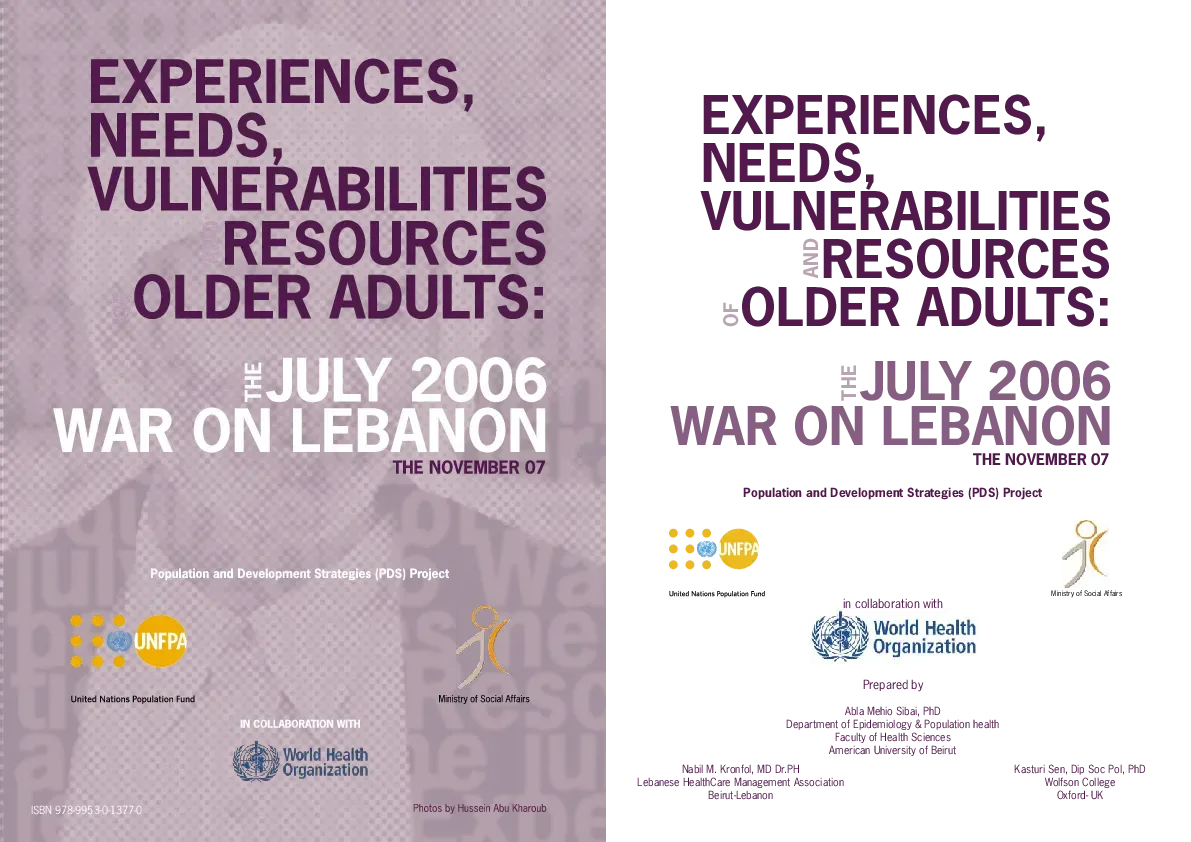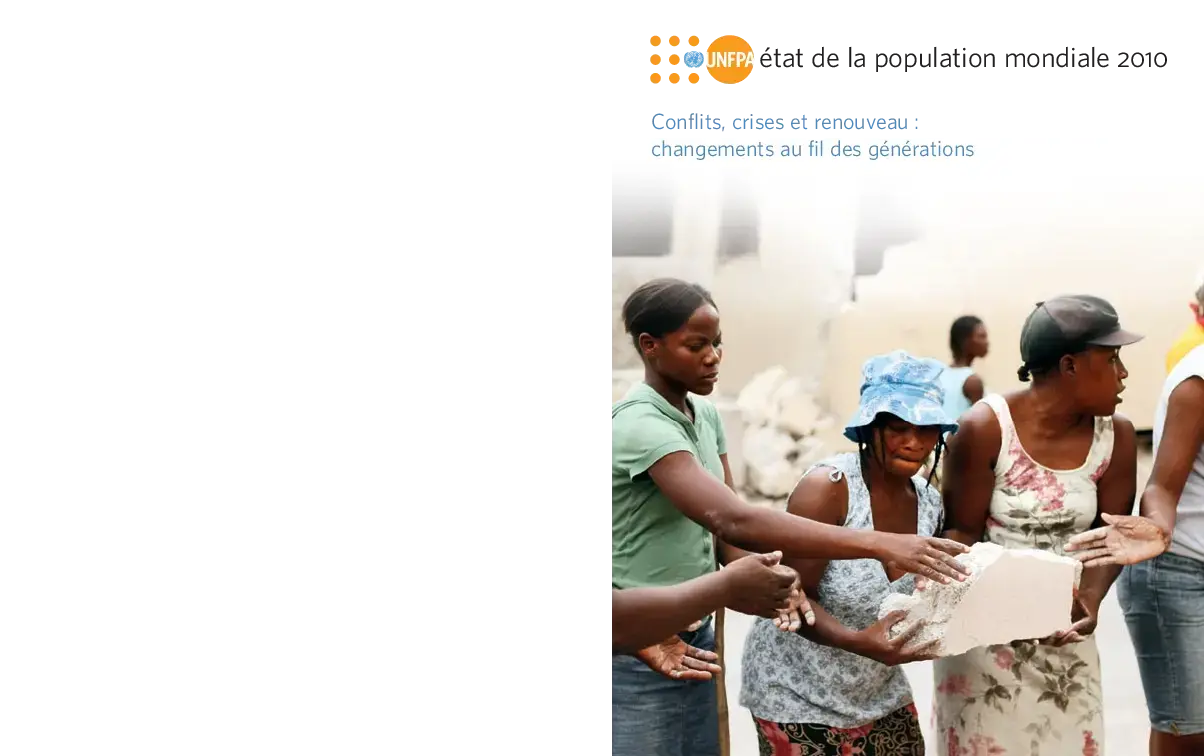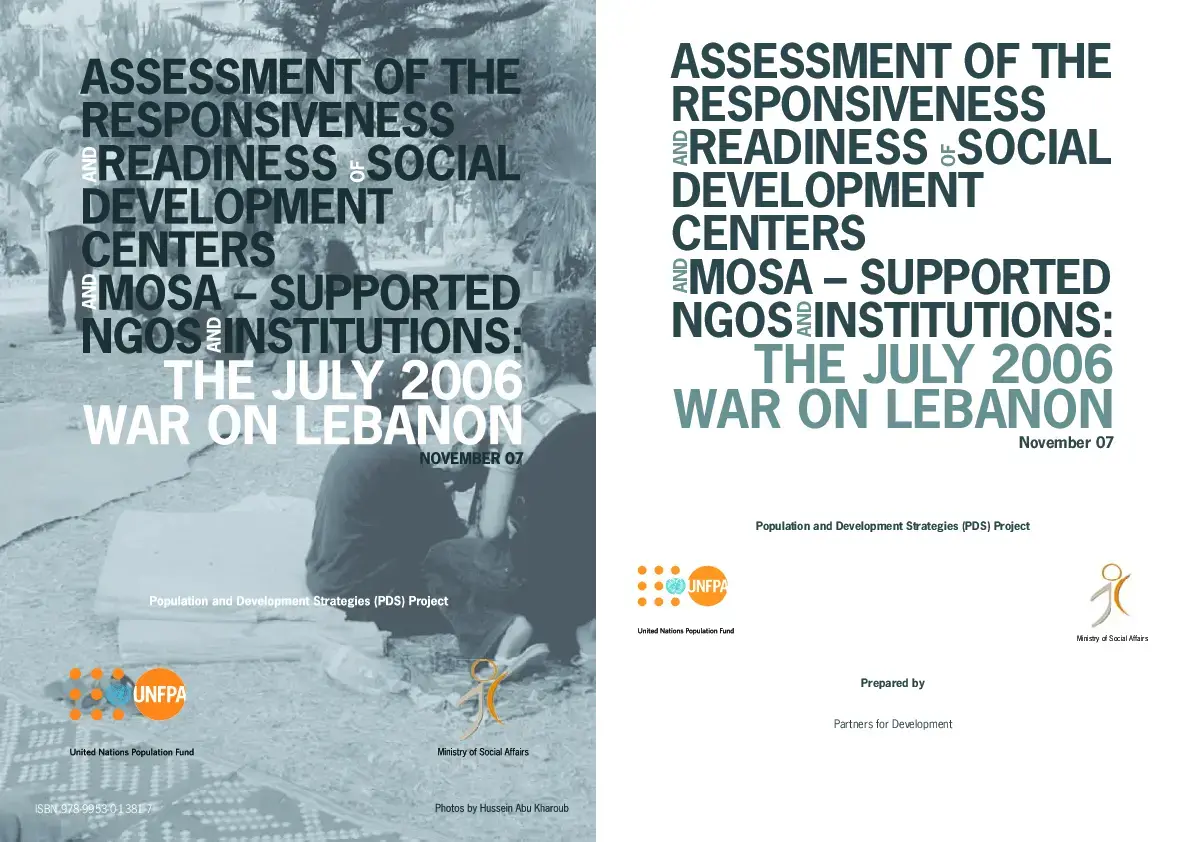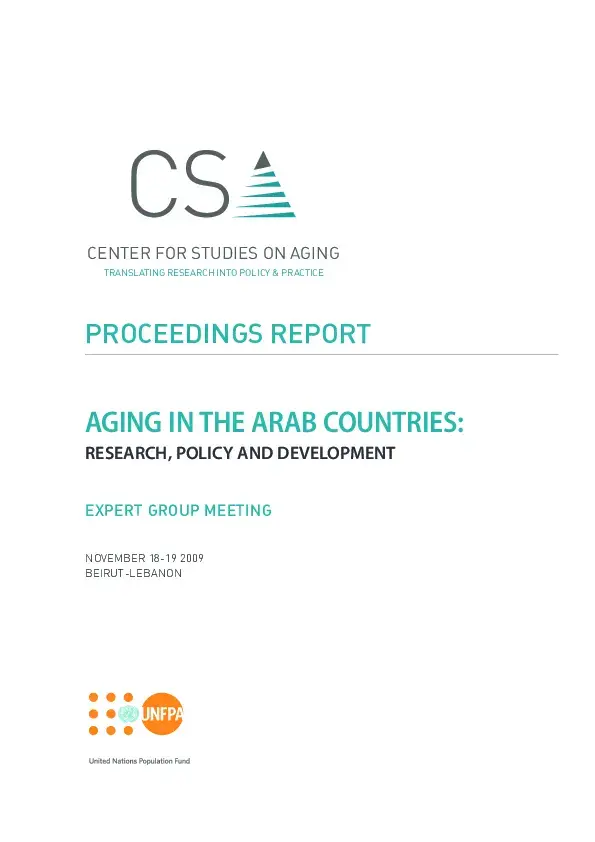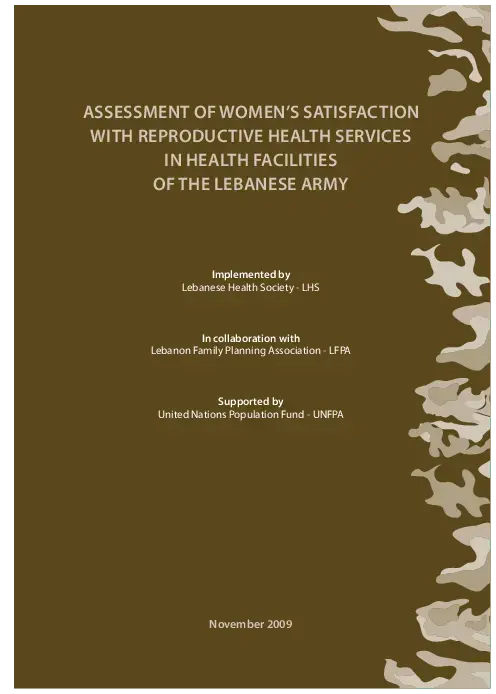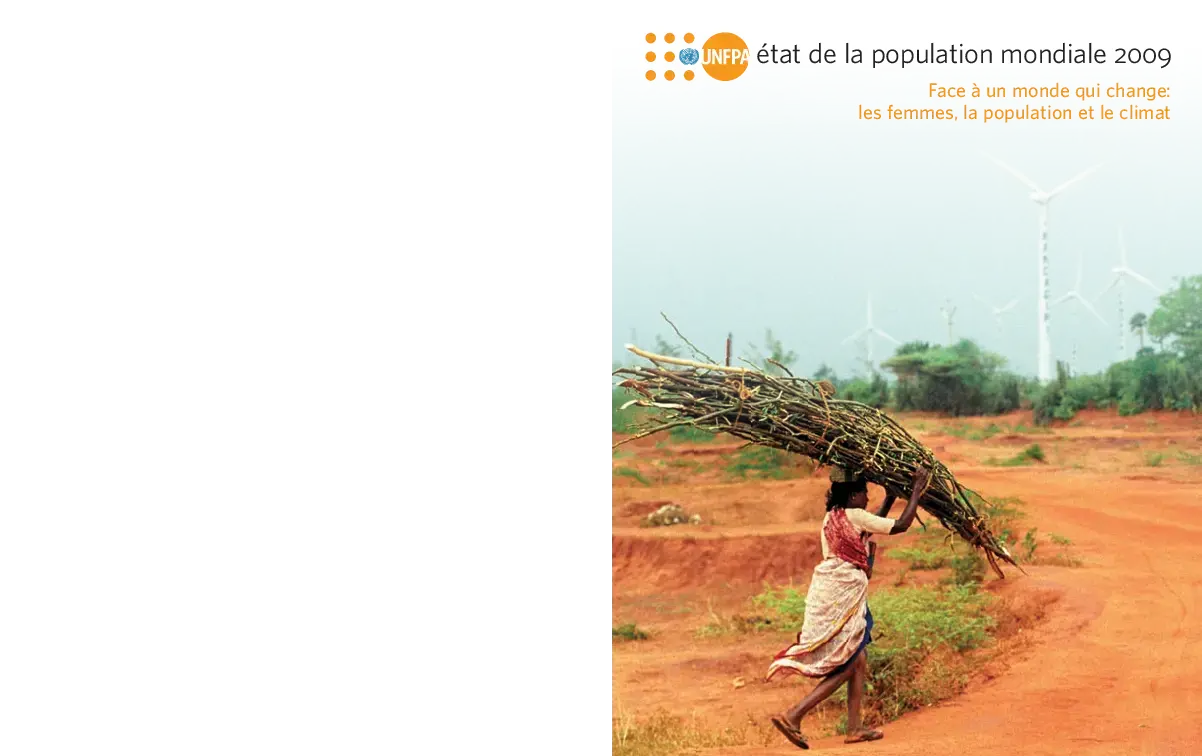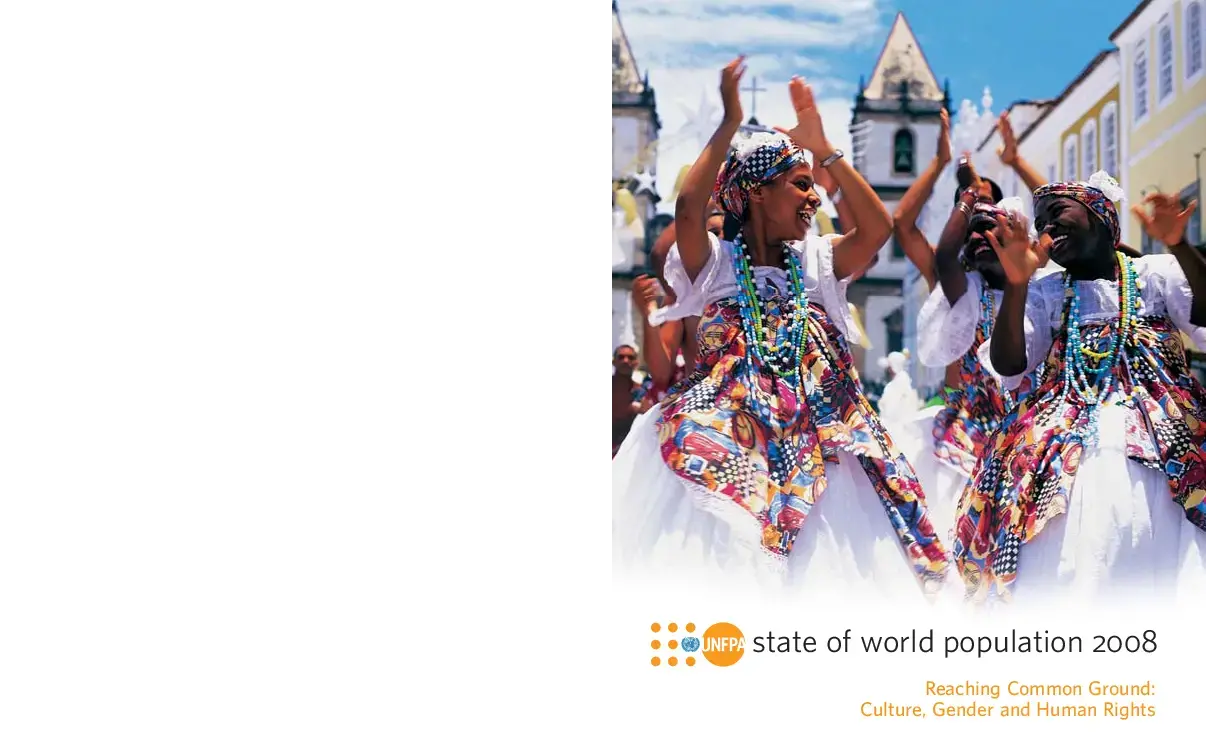Publications
Publications
Publication
Experiences, Needs, Vulnerabilities and Resources of Older Adults
Wars and complex emergencies have plagued several developing countries extending from South America to Asia. Whether across borders or internally concentrated, wars result in signi...
Read more
Publication
State of World Population 2010
The release of the 2010 edition of the State of World Population report coincides with the 10th anniversary of UN Security Council resolution 1325, which recognizes and seeks to...
Read more
Publication
Assessment of the Responsiveness and Readiness of Social Development Centers and MoSA-Supported NGOs
This survey collected both quantitative and qualitative data using in-depth interviews with representatives from MOSA’s related departments and PDS in addition to representat...
Read more
Publication
Aging in the Arab Countries: Research, Policy and Development
Dr Alexandre Kalache, former head of the Program on Aging at the World Health Organization (WHO) and current Advisor on Aging to the New York Academy of Medicine (NYAM), gave a glo...
Read more
Publication
Assessment Of Women’s Satisfaction With Reproductive Health Services
The main objective of this study was to assess women’s satisfaction with the services provided by LFPA at the selected Lebanese Army health facilities. More specifically, the...
Read more
Publication
State of World Population 2009
This year's flagship report argues that reproductive health care, including family planning, and gender relations could influence the future course of climate change and affect...
Read more
Publication
State of World Population 2008
Culture is and always has been central to development. As a natural and fundamental dimension of people's lives, culture must be integrated into development policy and programm...
Read more
Publication
State of World Population 2007
In 2008, for the first time, more than half of the world’s population will be living in urban areas. By 2030, towns and cities will be home to almost 5 billion people. The ur...
Read more
Publication
State of World Population 2005
How do we improve the lives of the nearly 3 billion individuals living on less than two dollars a day? How can we enable all individuals — male and female, young and old &mda...
Read more

